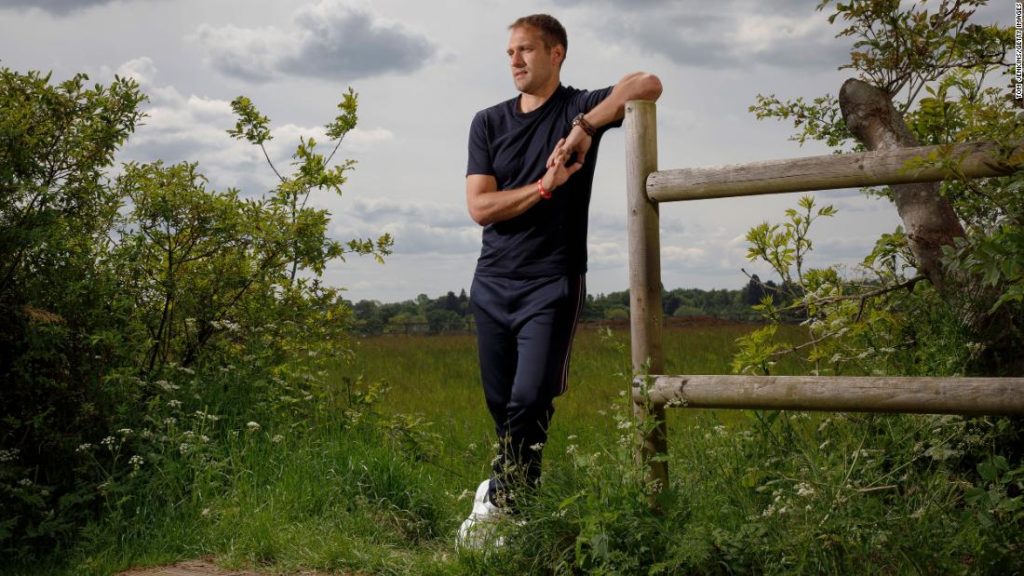Former Aston Villa captain Petrov speaks with incredulity as he tells CNN Sport of players who would ask when the next payday is.
“I used to have teammates who would speak to me before we actually get paid and my question would be, ‘You earn a great amount of money every single month, every single week … Why would you need to know when you get paid?'”
“They say: ‘Oh, everything I get, I just put it down. I’ve got a mortgage, payments, car, I’ve got my girlfriend.’ So at the end of the conversation, I was like: ‘What are you actually putting aside?'”
Petrov says his own financial education came from teammates and friends. He says that there are players, who despite earning “incredible amounts of money,” now have to “go and beg for work.”
According to Petrov, when he was a player, financial advisors would be “in and out of the training ground.”
There were “a lot of people promising so much, but they never deliver,” he says.
But when you’re young and earning good money, sometimes it’s difficult to spot potentially bad investments.
“You’ve just got be so, so wary and at quite a young age,” cautions Simon Barker, Assistant Chief Executive of the Players’ Football Association and former Premier League player for Queens Park Rangers.
“Sometimes in life, you have to experience problems to really understand and learn. And unfortunately, that’s what happens in life,” adds Barker.
Unfortunate turns of fate
In early 2012, just as he was negotiating a new contract with Aston Villa, Petrov was diagnosed with acute leukemia and his career was cut unexpectedly short.
While he was financially secure, Petrov wasn’t psychologically ready to accept the end of his career.
“Everything disappeared,” he said, speaking of his illness. “I wasn’t ready, I wasn’t prepared. Physically, mentally it’s really tough … I didn’t have time to settle in, to think about what I’m going to be next. I just had to fight for my life, so for me it became even more difficult.
Petrov underwent two rounds of intense chemotherapy treatment over three years which took its toll.
“I was unfit to go back to work, I was unfit to study … to do any kind of energetic activities because I wasn’t fit enough.
“I had to take about six, seven years to make sure I’m going to go back to … who I wanted to be, what I wanted to achieve.”
According to Petrov, when players are enjoying playing and are in the spotlight, they often ignore the signs that their careers are coming to an end.
“We’ve got the ego, everyone talking about us. We’ve got the attention, everybody’s pushing us, we’ve got the adrenaline, we’ve got purpose,” Petrov says.
According to statistics from the world players’ union FIFPro, 72% of pro footballers do not have an education beyond high school level and just 14% have completed vocational training. Only 12% having a university degree.
In a sport where the average contract length is just 22 to 23 months, advocates say footballers should be thinking more about what they can do outside of the game.
There are opportunities to explore after a player’s career ends, says Petrov.
“We have great transferable skills which a lot of other industries are looking into former athletes to be part of them — with their leadership, communication, desire, work ethic. This is something a lot of players don’t think of,” said Petrov.
The PFA Charity provided further education funding to 1,397 individuals in the 2019-20 calendar year, often in the form of grants and bursaries to help train younger professionals for later in their career.
Retirement from football for Barker was almost seamless as he segued into working at the PFA where he has been ever since. His job includes talking with current players about retraining for a second career.
“[The] transition over is a big issue, particularly for the first two years,” he says. “And the ones that seem to transition better to a second career are the ones that have got themselves in a position where they’re ready for it, so they’ve done courses.”
Football careers are short — between 10 and 15 years if you’re one of the lucky ones. Petrov’s boyhood dream was to become a footballer at the highest level, but he still yearns for more.
“I wanted to learn,” he says defiantly. “I wanted to give myself the opportunity to be somebody, to be something at some point.”
You may also like
-
Super League: UEFA forced to drop disciplinary proceedings against remaining clubs
-
Simone Biles says she ‘should have quit way before Tokyo’
-
Kyrie Irving: NBA star the latest to withhold vaccination status
-
Roger Hunt: English football mourns death of Liverpool striker and World Cup winner
-
‘Every single time I lift the bar, I’m just lifting my country up’: Shiva Karout’s quest for powerlifting glory

